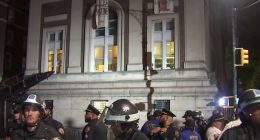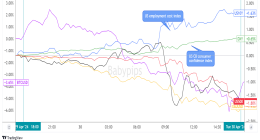TESLA drivers have been warned about driving in icy conditions as “crashes in electric cars may be worse,” experts claim.
Vehicles like Teslas will supposedly have added problems in icy weather, due to these electric cars experiencing battery issues in colder conditions.
The results of many winter range tests show that typically, an electric vehicle will cover around 20 percent fewer miles in cold weather versus beach weather.
Because of this loss of range, electric car drivers are likely to have added hassles to their journeys.
They have to reconsider how far they can go, and how long it will take to recharge the car.
Winter storms like the I-95 traffic fiasco this weekend would be much riskier for electric drivers, reported the Washington Post.
“If everyone had been driving electric vehicles, this mess could well have been worse,” wrote Lane.
“Any EV driver stuck on I-95 was right to be anxious — not only about a rapidly dying battery but also about recharging it.”
Most read in The Sun
Batteries of all kinds lose capacity more quickly in cold temperatures, and that even includes the sophisticated batteries used in electric vehicles.
This occurs because chemical and physical reactions slow down in the cold, according to Battery Scientist Jon Witt.
Electric cars also have to make their own heat, which is not a problem for the standard car’s internal combustion engine.
“In the cold, available engine heat is routed to warm the battery itself, meaning that cabin heating requires a power source,” said Witt.
“Cabin heaters generally draw from the high voltage battery, reducing how much battery is left for driving.”
According to Anna Stefanopoulou, director of the University of Michigan’s Energy Institute, batteries prefer temperatures between 60 and 80 degrees.
“You don’t have as much power when you want to discharge,” Stefanopoulou said to Wired. “The situation is even more limited when you want to charge.”
HEAT PUMP HELP
Luckily, the known issue of winter loss of range can be helped, though not fixed entirely.
Tesla acknowledged the problem by creating an efficiency-boosting heat pump, but recognized that the problem couldn’t be completely solved.
Wired recommends not letting the battery get too low, keeping above 20 percent at all times.
Scientists are working on solid state batteries that won’t be so sensitive to weather, but it is still developing in laboratories.
In the meantime, electric car drivers should take extra caution and bundle up.








